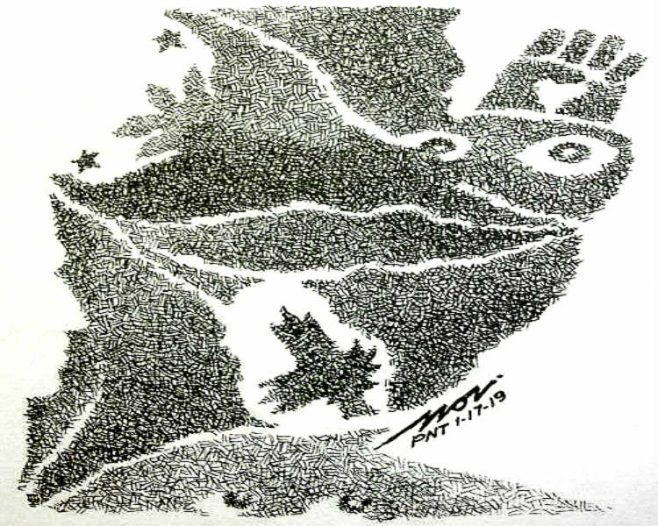Charles Edward Jefferson once said that, “Patriotism is a thing of the heart. A man is a patriot if his heart beats true to his country.” I cannot count how many times I have been told that I can no longer say I love the Philippines because I already live in Canada and I am a Canadian citizen. When fellow Filipinos tell me this, it is hurtful. Whether they want to sound patriotic or not, I do not think it is right to question a person’s love for one’s country or countrymen because they are away from it. Love for one’s country or patriotism is measured in so many ways. Staying in the Philippines, complaining about the situation of the country but not doing a single thing about it, or wallowing in self-pity not being able to help yourself, your family or your countrymen, is not patriotism.
Love for one’s country is not measured by being there. Jose Rizal wrote parts of the Noli Me Tangere while in Germany, and the other parts while he was in Spain. His being away from the country did not make him less a Filipino nor less a patriot. By being in another country, he had the lenses of one looking from the outside and seeing the situation from another perspective. I believe that those who are abroad have a perspective on things being outside that helps those who are there see what they cannot see from within. Some Filipinos who are in the Philippines think that because we are not there to “suffer” with them, we have no right to give our opinions on the situation in the country. It is unfortunate that they think of us in this way, instead of listening to us and understanding things from our point of view. I have often heard many Pinoys say, “Wala kayong karapatang magbigay ng opinyon tungkol sa nangyayari sa Pilipinas dahil wala naman kayo ditong nagdurusa tulad namin!” (You have no right to give an opinion regarding what is happening in the Philippines because you are not here to suffer with us), and they question our love for the country and our countrymen. This is very reflective of the still very much alive crab mentality pervading in the hearts of our beloved countrymen. Despite the contributions of the Filipinos abroad, from keeping the Philippines afloat with the dollar remittances sent everyday, or by making us proud for their accomplishments, they are told they have no opinion because they are not suffering with them. But what is the true definition and measure of suffering? Is it just the fact of being there, or does suffering from seeing our countrymen’s difficulties also count as suffering? Who gets to judge what suffering is and who suffers more? Is not the distance of Filipinos abroad, away from their families, considered suffering as well? And why are we focusing too much on who is suffering instead of looking at what good can come out of the suffering?
In an emergency on an airplane, one is instructed to put on his/her oxygen mask or life vest first before trying to help someone. This assures both persons that one is able to help the other, otherwise, if both are struggling to put their masks on, both can suffer the consequences of suffocation or drowning. In the case of Filipinos, the one living abroad is the one who has the mask or life vest one, and who tries to save the other from suffocation or drowning. With the best of their abilities, they try to alleviate the challenges of those in the Philippines by sending financial help and other opportunities, including that of leaving the country as well. Isn’t that a true a measure of patriotism, when one is able to help the other? Is patriotism measured by staying in the Philippines and suffering with the rest, simply because one believes leaving the Philippines is abandonment and unpatriotic?
I have told many of my friends back in the Philippines that they should see the work of the Filipino communities abroad, who put together medical missions, scholarships, and financial aid for their fellow Filipinos. It is amazing and heart-warming to see the true bayanihan spirit come alive in many instances of patriotism and altruism in action. Yes, there will always be squabbles in the Filipino communities all around the world, but when it comes to helping their countrymen in need, Filipinos abroad are truly deserving to be called true patriots for always coming to the rescue and contributing to the needs of their fellow Filipinos. This is the instance when, in emergency cases, we quickly put our masks and vests on, so that we can save others. If Filipinos in the Philippines cannot appreciate this love we give them, we will not stop, because patriotism is in the heart, not the flag we bear on our shoulders.








